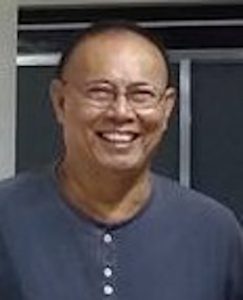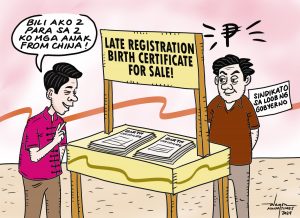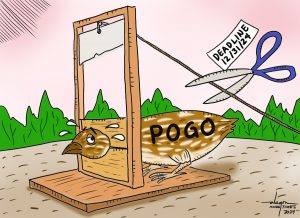 WITH barely four days left of his term as the 16th President of the Republic of the Philippines President Rodrigo Roa Duterte bade his constituent goodbye.
WITH barely four days left of his term as the 16th President of the Republic of the Philippines President Rodrigo Roa Duterte bade his constituent goodbye.
There is no doubt that the Davaoeno President is well-loved by the people, gauged from the reactions of many in these dying days of his administration. The social media is flooded with desperate wishes for him to remain (sana) in office if legally possible. Other than these the President’s trust ratings in the last surveys conducted on his performance remain exceptionally high compared to all the previous Presidents of the country whose ratings were at rock bottom even a year before their terms ended.
Duterte did not even reach the situation where he was called a “lame duck” President. That was why almost every candidate wanted his endorsement. Yes, he had endorsees that did not make it in their bid. But just the same the ones who were lucky to get his open support, especially those aspiring for the Senate, made it. In fact all but one of the winning senators in the May 9, 2022 elections are known Duterte backers or not one of his harshest critics.
Of course the outgoing President is also the most hated by his critics, most of whom belong to the main opposition group, some sectors in the religious, those who feel deprived of opportunities to make hay under the Duterte administration, and those who had the hardest time to force their ideologies on their target sectors. But what percentage are these sectors of the population compared to the total number of Filipinos? Only, they are the most indefatigable in making noise in society. They are the ones who shout the loudest hoping to get the sympathy of the rest of the Filipinos.
**************************
Should lawyer Zulyka Lopez be moved by incoming Vice President Sara Duterte-Carpio to Manila? Who could incoming Davao City Mayor Baste Duterte appoint to take her place as City Administrator?
The City Administrator is a position of trust by the mayor himself because if the city government is to be likened to a corporation the occupant of the office is like the Chief Operating Officer (COO) who takes care of the day-to-day operation of the corporation and sees to it that the policies and office procedures are executed to the letter.
Normally, documents covering transactions in the city that bear the approval/signature of the City Administrator are deemed in accordance with existing local government policies and regulations and legally compliant.
That is why the City Administrator can either sign these documents “by authority of the mayor” or the mayor signing them without much effort at reviewing because these bear the recommending approval or rejection by the City Administrator.
It is in this vein that many Davaoenos may now be in a guessing game whether Lyka will eventually leave her post and continue her work with the new Vice President, and who Baste will be appointing to take her place. Do you have any name in mind?
*************************
Most of the past administrations including the outgoing one, sort of smoke-screen its failure to control the skyrocketing of the fuel prices by saying that the country could not do anything about it because it is at the mercy of the oil producer nations and other global phenomena, man-made or natural.
We agree to such justification one hundred percent. Yes, we cannot do anything if the oil producing countries reduce their production and sell their black gold at exorbitant cost. They have the natural resource and they alone have the right to determine how much they sell it to other countries, especially those that do not have the oil.
But certainly there is something that the government can do and it is within its power and control to do it. Isn’t it that the government can decide whether to suspend even if temporary only, the imposition of the excise tax on fuel products? Is not that the government can come up with alternative taxes to be levied on other items or services that may not necessarily disturb the overall economic situation in the country?
Or better still, the government may re-impose the Oil Industry deregulation regime and establish a fund similar to Marcos Sr.’s time, the Oil Price Stabilization Fund (OPSF)?
Perhaps the government can find other items or services that may be taxed in lieu of the excise tax on fuel products, one that will impact only on a particular segment of the population and the economy.
Definitely, all the latter are under the government’s control. So why not make a serious consideration?
Today, with just a wink of an eye of the oil industry players in cahoots with oil products retailers, price increases are implemented at will.


